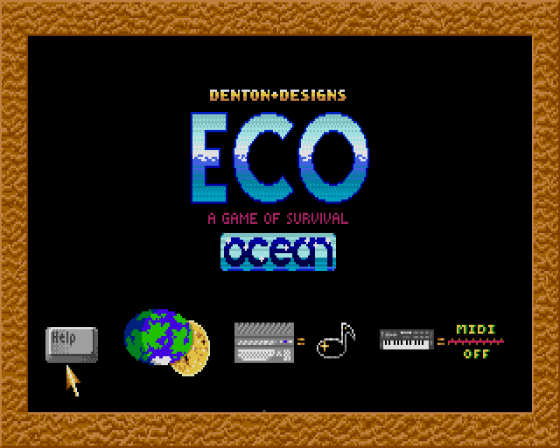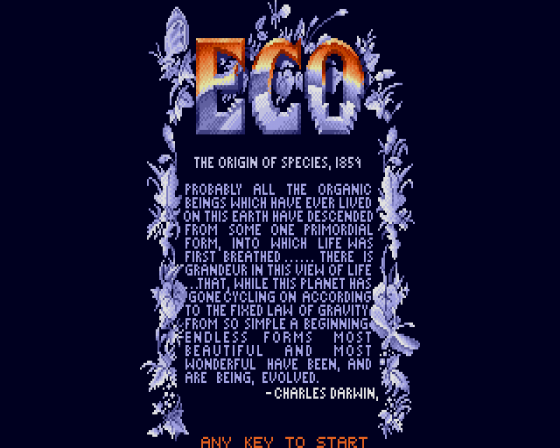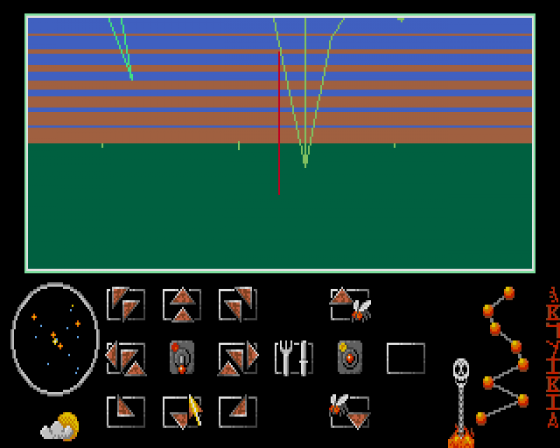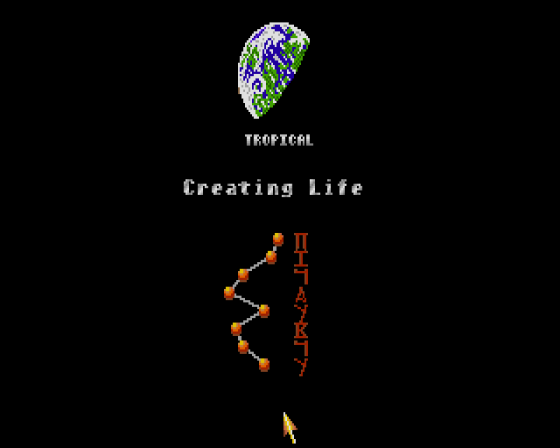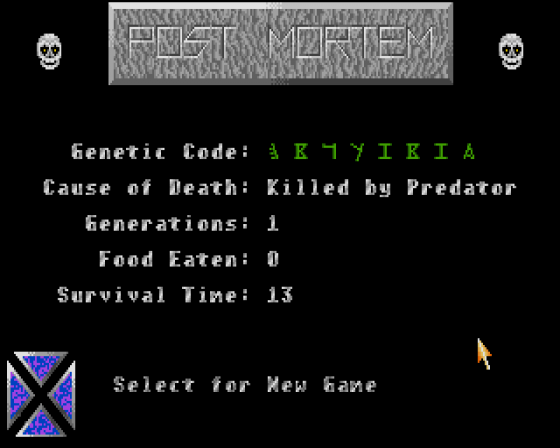
C&VG
 1st March 1988
1st March 1988
Categories: Review: Software
Publisher: Ocean
Machine: Atari ST
Published in Computer & Video Games #77
Eco
Ocean is not renown for its thought-provoking software but their latest 16-bit release, ECO, may well have you contemplating life, the universe and the price of Atari ST software.
Designed and programmed by Liverpool-based Denton Designs, ECO places you on the bottom rung of the evolutionary ladder, with one single aim... survival.
To begin with, the program randomly generates a world, complete with climate and population... a kind of speeded-up software version of 'the dawn of time'!
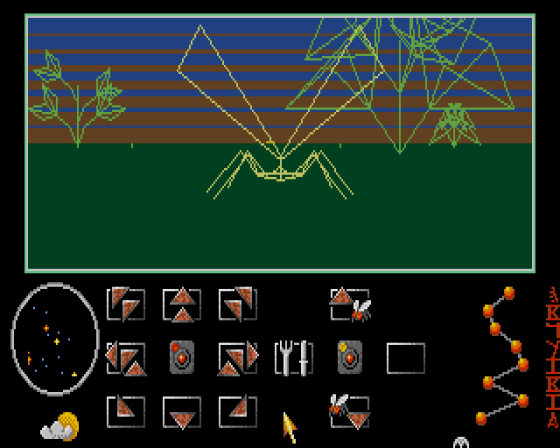
As a lowly and insignificant baby insect, you are thrown into this world, in search of food and a mate.
The world is seen in 3D, initially from behind your insect, which is shown in beautifully animated vector graphics, as is the case with all other trees and animals in the game. As you move your insect, so new creatures come into view; some are walking, other gallop, squirm, or hop, and still others have perfected the art of flight.
To mate, you need to find and approach another member of your own species. If there's one thing more frustrating than being eaten just before you manage to mate, it's seeing your potential partner getting squashed by some giant dinosaur who wasn't looking where he was going.

Successfully mating brings up the 'gene design' screen, where you can unlock, and move, one of your genes to create (hopefully) a more advanced species. Every time you mate, you can unlock another gene, giving you still more possibilities for evolution.
Each gene affects different aspects of your make-up, but many interact with each other to bring about very complex changes in the species. As you slide genes into new configurations, the new creature these changes would produce, is shown in windows giving you three different views - front, side and plan.
Genes affect such things as the number and size of limbs, the occurrence of wings, body size, whether the new creature will walk upright or on all fours, and numerous other evolutionary factors. The trick is to work out which are the more important genes and how they interact.

Each time you succeed in moving up the evolutionary scale, there are more species that you can kill and eat (including all the species that you have just evolved through) and fewer animals that are a direct threat to your existence.
However, this doesn't mean that you can develop into a horselike quadrupled, or a humanlike biped, and not worry about being knocked off. Far from it, because the concentration of creatures, above you on the evolutionary scale, will always increase enough to keep you on your toes - or hoofs or claws!
Failure to feed and mate before the timer, in the form of a skull sinking into the flames, runs out will result in your species becoming extinct. The same fate awaits you if you are squashed or eaten by a superior species.
Although it may not appeal to hardened arcade freaks, ECO is a beautifully conceived and implemented piece of software, that is not only fun to play, but could also be used to illustrate Darwin's theories of evolution in the biology classroom. Full marks to Denton and Ocean.


